We know that winter can be a difficult time for horse management and we receive hundreds of phone calls to our help and advice line, via online chat and email. Here are the top five problems horse owners have encounter this winter.
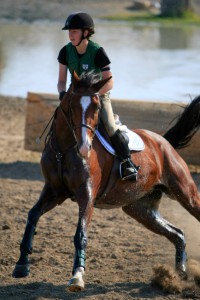 Over exuberance, spooking and generally highly strung horses and ponies. There are several main reasons to cause such behaviour and they usually stem back to regime and diet, commonly horses spend more time in confinement during the winter months putting strain on their mental and physical well-being, many horses in this situation are also being overfed or incorrectly fed. It is amazing what a few small dietary and regime changes can make to your horses overall well-being.
Over exuberance, spooking and generally highly strung horses and ponies. There are several main reasons to cause such behaviour and they usually stem back to regime and diet, commonly horses spend more time in confinement during the winter months putting strain on their mental and physical well-being, many horses in this situation are also being overfed or incorrectly fed. It is amazing what a few small dietary and regime changes can make to your horses overall well-being.
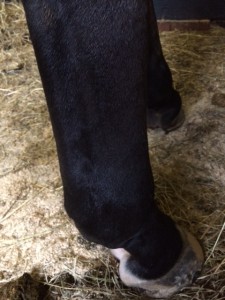 2. Horses who are standing for long periods of time can be prone to filled legs, the filling is seen in 2 or 4 legs (either the front pair or the back pair or all four) this is caused by fluid gathering in the lower part usually due to the circulation and lymphatic systems becoming sluggish. Often owners bandage their horse’s legs to help reduce the filling, fluid will often disperse once the horse is walked in hand or turned out and feeding selective herbs are said to help horses with filled legs. Remember it is important to check out any unusual filling with your vet.
2. Horses who are standing for long periods of time can be prone to filled legs, the filling is seen in 2 or 4 legs (either the front pair or the back pair or all four) this is caused by fluid gathering in the lower part usually due to the circulation and lymphatic systems becoming sluggish. Often owners bandage their horse’s legs to help reduce the filling, fluid will often disperse once the horse is walked in hand or turned out and feeding selective herbs are said to help horses with filled legs. Remember it is important to check out any unusual filling with your vet. 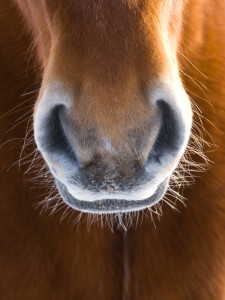 3. Many equines develop problems with their airways due to a number of reasons, dust, mould spores, lack of ventilation, poor quality hay or haylage. Horses often develop a cough or nasal discharge and it is always advisable to seek advice from your vet if the cough is ongoing. Making changes to your horse’s environment i.e. soaking hay, using dust free bedding, turning out as much as possible can all help to keep your horses airways clear. Certain ingredients can be fed to help clear excess mucus.
3. Many equines develop problems with their airways due to a number of reasons, dust, mould spores, lack of ventilation, poor quality hay or haylage. Horses often develop a cough or nasal discharge and it is always advisable to seek advice from your vet if the cough is ongoing. Making changes to your horse’s environment i.e. soaking hay, using dust free bedding, turning out as much as possible can all help to keep your horses airways clear. Certain ingredients can be fed to help clear excess mucus. 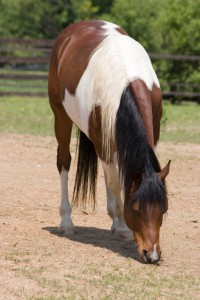 4. We receive calls during the summer months when the grass is sparse regarding sand colic but this winter we have seen a dramatic increase in the number of cases especially here on the Norfolk/Suffolk coast. With the very wet weather we have experienced this year grazing is very poached and it appears horses are ingesting more sand particles which gradually build in the horses gut causing the horse to colic. If you live in a sandy area and you are concerned about your horse’s health, speak to your vet or ask for a sample of your horse’s poo to be sent off of analysis. Many vets recommend a short course of Psyllium husks which can be added to the horses feed.
4. We receive calls during the summer months when the grass is sparse regarding sand colic but this winter we have seen a dramatic increase in the number of cases especially here on the Norfolk/Suffolk coast. With the very wet weather we have experienced this year grazing is very poached and it appears horses are ingesting more sand particles which gradually build in the horses gut causing the horse to colic. If you live in a sandy area and you are concerned about your horse’s health, speak to your vet or ask for a sample of your horse’s poo to be sent off of analysis. Many vets recommend a short course of Psyllium husks which can be added to the horses feed. 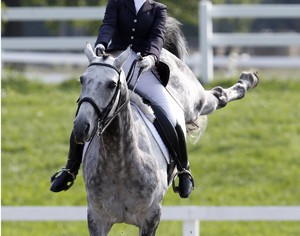 5. Grumpy horses including those who are sometime aggressive around feeding time and may also show signs of stomach discomfort, a dislike to being girthed, rugged or groomed and if ridden may feel cold backed or buck. If your horse displays one or more of these actions it may be a good idea to talk to your vet about suspected gastric ulcers, they are very common in horses and often can be more obvious to the owner whilst the horse is stabled for long periods. If ulcers are suspected then it is good practice to feed a high forage and fibre diet, try and avoid any cereal or starch and allow as much natural grazing a possible to help increase the horses saliva prodcution. Feeding other ingredients which help to coat the stomach lining and neutralise acid may also help with your horse’s discomfort. Our Freephone advice line is open 7 days a week so if you would like any further information regarding any of the above mentioned problems or a totally different problem then please don’t hesitate to contact us on 0800 585525 or visit www.feedmark.eu and click on live chat or email us at [email protected].
5. Grumpy horses including those who are sometime aggressive around feeding time and may also show signs of stomach discomfort, a dislike to being girthed, rugged or groomed and if ridden may feel cold backed or buck. If your horse displays one or more of these actions it may be a good idea to talk to your vet about suspected gastric ulcers, they are very common in horses and often can be more obvious to the owner whilst the horse is stabled for long periods. If ulcers are suspected then it is good practice to feed a high forage and fibre diet, try and avoid any cereal or starch and allow as much natural grazing a possible to help increase the horses saliva prodcution. Feeding other ingredients which help to coat the stomach lining and neutralise acid may also help with your horse’s discomfort. Our Freephone advice line is open 7 days a week so if you would like any further information regarding any of the above mentioned problems or a totally different problem then please don’t hesitate to contact us on 0800 585525 or visit www.feedmark.eu and click on live chat or email us at [email protected].











